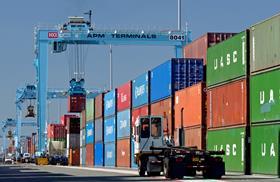
European growers could be among the main beneficiaries from the Transatlantic Trade and Investment Partnership (TTIP) – provided a number of hurdles can be overcome.
That view was put forward by European Parliament member Herbert Dorfmann, who tackled the controversial topic at the Prognosfruit conference in South Tyrol this week.
TTIP aims to make it easier for the US and EU to trade on a bilateral route that is already worth some €2 billion a day. The US is already the EU’s main customer, taking 13 per cent of its exports, while the EU is the number-two customer of the US, taking 10 per cent of its exports.
While on the face of it TTIP seems unbalanced in favour of US agriculture when it comes to growth potential from the deal – EC analysis suggests that EU agri-food exports could rise 56.4 per cent while US exports could increase as much as 116.3 per cent – the figure is much more favourable to the EU when it comes to horticulture.
Fruit and vegetable exports from the EU to the US stand to increase by 19.7 per cent, the analysis suggests, compared to just 4.6 per cent in the opposite direction.
“So while at first glance we could say we should be led to reject an agreement of this type, because in terms of a boost to agriculture it would be the US agri-food sector that would benefit, it really depends on what we are purchasing from each other, and it varies significantly according to sector,” Dorfmann explained.
TTIP generally favours the EU on processed food and the US on non-processed food such as corn and soya, he added.
Dorfmann said the main concern of negotiators was over non-tariff obstacles, while a new proposal on TTIP is expected to be tabled by EC commissioner Cecilia Malmstrom shortly.
Further issues surround unifying standards in areas such as maximum residue levels for pesticides, improving co-operation on plant issues and getting the US to treat the EU as a single state rather than individual nations. The EC also wants to see a joint management committee for sectors not affected by tariffs.
“If we can overcome these issues we can pave the way for more trade,” he concluded.
It is highly unlikely that the TTIP will be signed before the end of US president Barack Obama’s term in office, Dorfmann said, meaning it will be several years before any changes come into practice.



